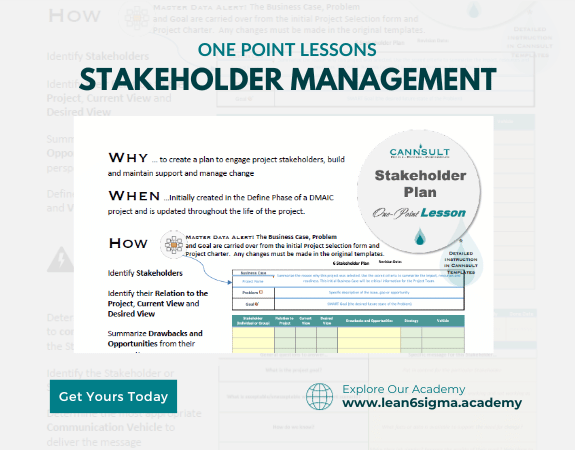Stakeholder Management
Successful projects
Get organized!
Customer Service
Sustainable Results
Sharing information the right way
Stakeholders are individuals or groups who have an interest or influence in a project or organization.
Effective stakeholder management is essential to ensure their needs and expectations are met, leading to better project outcomes and overall success.
What this document covers:
Identify Stakeholders: Create a comprehensive list of all potential stakeholders. This includes internal teams, external clients, customers, regulatory bodies, and any other parties impacted by the project.
Prioritize Engagement: Not all stakeholders are equally important. Determine the level of influence and impact each stakeholder holds. Prioritize engagement efforts based on their significance to the project's success.
Understand Needs and Expectations: Engage with stakeholders to understand their needs, expectations, and concerns. This insight will guide your decision-making process and help tailor your approach.
Open Communication Channels: Establish clear and open communication channels. Regularly update stakeholders on project progress, challenges, and successes. Ensure transparency and avoid surprises.
Customize Communication: Different stakeholders may have varying levels of technical knowledge and interest. Customize your communication style and content to cater to each group's preferences.
Address Concerns Promptly: Address any concerns or issues raised by stakeholders promptly and professionally. This demonstrates your commitment to their interests and helps prevent minor problems from escalating.
Manage Conflicts: Conflicts among stakeholders are common. Act as a mediator to resolve conflicts and find solutions that benefit all parties involved.
Monitor and Adapt: Stakeholder dynamics can change over time. Continuously monitor their needs and adjust your engagement strategy as necessary.
Benefits:
Improved project outcomes
Enhanced stakeholder relationships
Reduced risks of misunderstandings
Increased support and buy-in
Key Takeaway:
Proactive stakeholder management is an ongoing process that requires effective communication, understanding, and adaptability. Prioritize building and maintaining positive relationships to ensure project success.

0 Reviews
Riaan is a dynamic leader, coach, facilitator, Lean Six Sigma Master Black Belt with over 20 years of hands-on experience driving business results. Riaan is highly skilled and has worked across diverse industries internationally. With a degree in Chemical Engineering, Riaan started in the major breweries and bakeries in South Africa and was so dedicated to his work that he was often known to take his work home with him.
